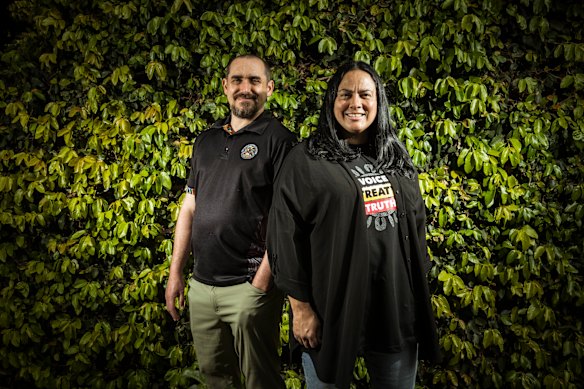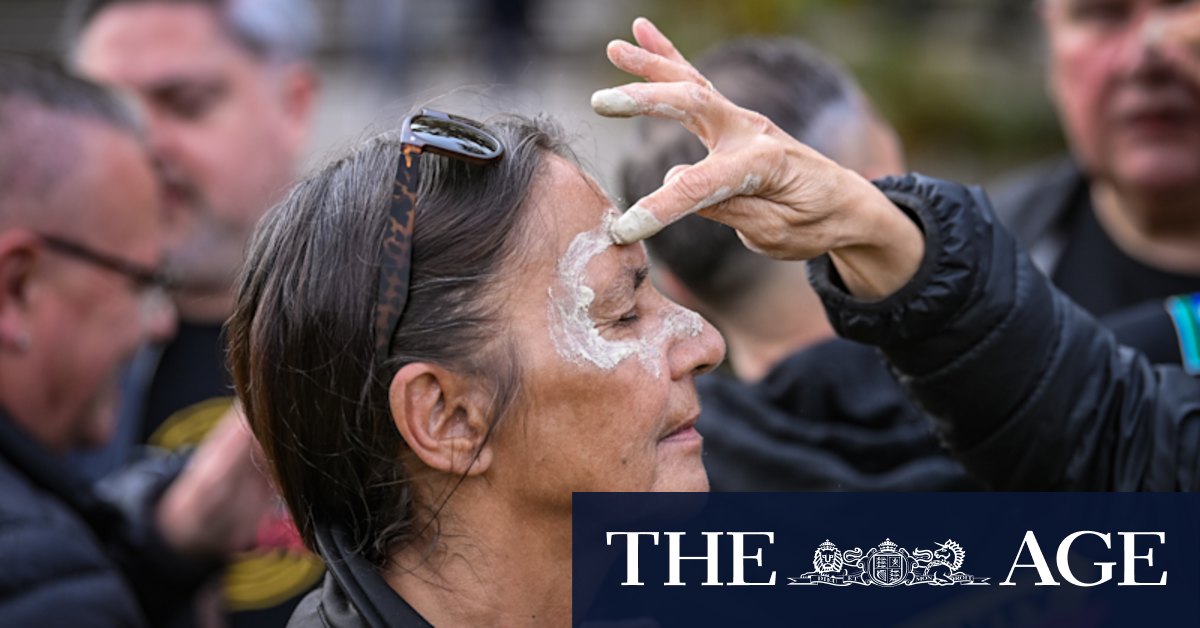“But its powers are carefully limited and circumscribed so as not to impinge upon parliament’s sovereign powers to make laws and the government’s capacity to govern.
“Although it is very new and remarkable in many ways, it draws on established constitutional processes and consultation mechanisms to bring First Peoples much closer the centre of power, where previously they have been marginalised and excluded.”
First Peoples’ Assembly co-chairs Ngarra Murray and Reuben Berg said Aboriginal people were not being well served by the status quo.
“Successive governments have failed to deliver improvements in health, education and housing for First Peoples,” they said. “Treaty is about putting decision making in our hands so we can develop the practical solutions that will close the gap between our people and non-Aboriginal Australians.”
Loading
Once a treaty is signed, all subsequent legislation will include a Statement of Treaty Compatibility. This will report on whether the First Peoples’ Assembly was consulted before the Bill was introduced to parliament and whether its aims are compatible with addressing “the unacceptable disadvantage inflicted on First Peoples by the historic wrongs and ongoing injustices of colonisation.”
If legislation is incompatible with this and other aims, such as advancing the self-determination of Victoria’s First Peoples, the Bill must declare this but can still be passed into law. After a Bill is introduced, the First Peoples’ Assembly can request further information about it and publish the advice it receives.
This mirrors the mechanism already in place for Victoria’s Charter of Human Rights and Responsibilities, which was legislated nearly 20 years ago.
The annual, operating budget for Gellung Warl, to be taken out of the government’s consolidated fund, will be set at just over $70 million for its first full year of operations, and increase by 2.5 per cent every year. This means that any future decision to cut Gellung Warl’s funding will require a change to legislation.
The First Peoples’ Assembly negotiating team, which included its co-chairs and Victorian Aboriginal Legal Service chief executive Nerita Waight, pushed hard for this protection to ensure that Gellung Warl did not repeat the history of ATSIC, a national indigenous representative body established by the Hawke government but defunded by former prime minister John Howard.
Cabinet approved the treaty legislation last Monday and had intended to introduce it to parliament during the previous sitting week but postponed its plans after the fatal shooting of two police officers near the Alpine village of Porepunkah. A government source confirmed the Bill would be introduced when the parliament next sits.
Opposition Leader Brad Battin has declared the Coalition parties oppose treaty and questioned the government’s judgment in bringing the legislation to parliament.
“The Victorian people have already voted no to a Voice to parliament, they have sent their message quite clearly,” he said last week. “Many of the things they want to talk about, whether it is Closing the Gap, making sure we can keep indigenous people out of the justice system, better health outcomes, better education outcomes, you don’t need a treaty.”
The Greens have been briefed on the legislation and will support it in the upper house, where the government will need just one additional cross-bench vote to secure its passage into law.
Leader of the Victorian Greens Ellen Sandell described the legislation as history in the making. “The Greens are incredibly proud to support treaty legislation, the first of its kind in the country. This is our chance to make history and for First Nations people to have the power to determine their own futures and for all of us to walk towards a better tomorrow.”

First Peoples’ Assembly co-chairs Rueben Berg and Ngarra Murray.Credit: Chris Hopkins
The Animal Justice Party’s Georgie Purcell, one of seven independent MPs who holds the balance of power in Victoria’s upper house, confirmed she had been briefed on the bill and would support it.
Kevin Bell said the most significant difference between Gellung Warl and the Voice is there was no legislation for the Voice setting out its legal structure and intended functions released before people were asked to vote for its inclusion in the constitution.
The First Peoples Assembly, which will be re-elected in May for a four-year-term by traditional owners and Aboriginal and Torres Strait Islanders from elsewhere living in Victoria, is the engine room of Gellung Warl.
The assembly is intended to be self-determining and independent from government. It has no ministerial oversight and its members cannot be parliamentarians or work for one. However, it will have strict internal accountability mechanisms, legislated standards of conduct and come under the jurisdiction of the Ombudsman, the Auditor-General and Victoria’s anti-corruption agency.
Under the treaty legislation, the First Peoples’ Assembly exercises broad consultation, advisory and accountability powers given to Gellung Warl and appoints the members of the truth telling body, to be known as Nyerna Yoorrook Telkuma, and an accountability and oversight body known as Nginma Ngainga Wara.
Nginma Ngainga Wara, in effect a First Peoples’ productivity commission, will monitor the impact of state government policies on First Peoples. It can conduct inquiries but will not have coercive powers to compel witness testimony.
The legislation unreservedly leans into the “black armband of history” lamented by former prime minister Howard and includes a lengthy preamble which sets out the unique custodianship and connection of First People to country and their assertion that sovereignty was never ceded.
“The historic wrongs and ongoing injustice of colonisation have resulted in unacceptable levels of discrimination, disadvantage and intergenerational trauma for First Peoples,” the preamble states.
“These acts of injustice must not continue or be repeated. The State of Victoria commits to not repeating past injustices. Past and existing laws have not been able to fully recognise the inherent rights of First Peoples or address disadvantage and trauma.
“It is acknowledged that since colonisation Traditional Owners of Country in Victoria have fought for and won back some of the rights and status they hold under Aboriginal Lore and Law. These rights have been shaped by First Peoples’ Ancestors and are a foundational pillar in the ongoing journey to self-determination.”
The First Peoples’ Assembly met two weeks ago to endorse an in-principle treaty agreement it reached with the state following eight months of formal negotiations and was last week briefed on the treaty legislation.
The bill to be introduced to parliament runs to nearly 250 pages and requires changes to 17 separate existing laws covering heritage, freedom of information, audits, tax, data management, public records and public administration.

